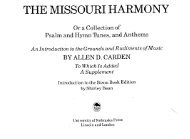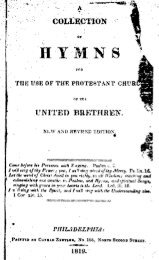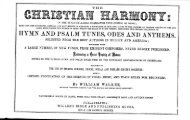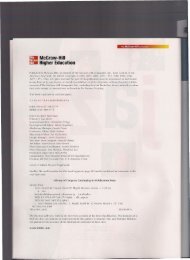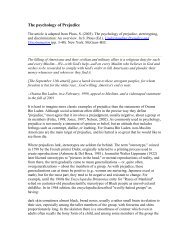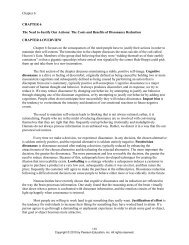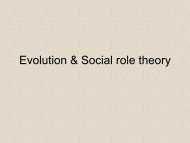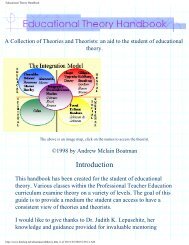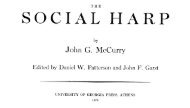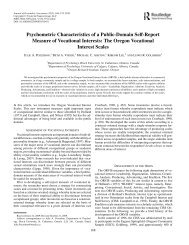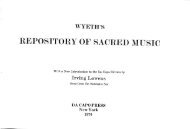Cleavage Structures.pdf
Cleavage Structures.pdf
Cleavage Structures.pdf
You also want an ePaper? Increase the reach of your titles
YUMPU automatically turns print PDFs into web optimized ePapers that Google loves.
CLEAVAGE $TRUCTURES, PARTY SYSTEMS, AND VOTER ALIGNMXNTS<br />
deqlclons or the introduction of sornc variety of Proportional Representation?<br />
/n *ira and final tet of qucationrbeari on the- behavior of- the mass ol<br />
ra)ft party systems: How quickly were<br />
the parties able to recruit support among the new m4sses of enfranchized<br />
citizens, and what were the coie characteristics of the groups of voters mobilized<br />
by each party? Which conditions helped and which conditions hindered<br />
the mdbilizatj,6rdstt-ntfag1 p"rty wiGin ffi- @<br />
tiiiienry? How quickly did -he cbapges in economic, social, and cultural<br />
conditions brought about through eionomic growth or stagnation translate<br />
themselves into ihanges in m@es of ihe parties? How<br />
did political success affect the rates of mobilization and the inflow of new<br />
supp[rt ruit new clienteles and<br />
chiirge their folloivingi as they established their viability as useful channels of<br />
influence in the decision-making processes?<br />
Jlesb are some of the questions we hope to throw light on in this volume.<br />
We have assembled<br />
the economic, the social, and the<br />
confront us with tasks of developmental comparison' to understand the current<br />
alignments of voters behind each of the parties, we have to maP variations<br />
in intlte the iauences g-e4uegqes*of of alternatives altqgatrver set for the active active and the passive citizens citizens- within<br />
each iyite-Tince*itt" Em?ig"nc" of competitive politics. Parties do not<br />
simolv simply orl:;nt prLjnt themselves de nbvo n-ovo to the citizen at each election; theY they each<br />
have a history and so have the constellations of altematives they preselt to<br />
the electorate. In single-nation studies we need,. go-1*q[y1ays take this -hjsto:y*.<br />
into account in analyzing critt€iif-dli$ments: we assume that the parties are<br />
equally visible "givens" to all the citizens within the nation. But as soon as<br />
wL move in@ have to add anaristorical dimension.<br />
We simply [annoi-mak. sense-of variations in current Aignments wiif,-ddf<br />
detailed-dita on difterences in the sequences of party formation and in the<br />
character of the alternatives presented to the electorates before and after the<br />
extension oi the suffragc.t We have to carry out our comparative analyses in<br />
several steps: we first have to consider the initial developments towald cop- -.<br />
*ltlue-poiiUcr ana *r" insti xt must<br />
i-tr;ntanli" t@s-iid oppositi on s which, produced the<br />
nationallystem of mass organizations for electoral action, and then, and only<br />
then, can-we make headway toward sone understanding of the forces producing<br />
the cunent alignments of voters behind the historically given alternatives.ln<br />
our Western democracies the voters are only rarely called uPon to<br />
express their stands on single issues. They are typically faced with choices<br />
adong historically given "packages" of programs, commitments, outlooks, and,<br />
iO*"toOa-*ts."<br />
ion of the<br />
We shail fu$Ldlscus!- -2'<br />
fithiq nitional political commun$i-l<br />
The Political Party: Agent ol Conflict and Instrume)f;f Integration<br />
..parry" has throughout the history of western- gd"*ttot :tTg,il,l di-<br />
'i.i;; :""iil,,'.p-f.'J,itn;'ii;';'btdy politic'3'{'Partv" is etymologically<br />
derived from "part" *d;i;;;il ilJ."ppJ"ita in nolitical'discourse in tbe late<br />
Middle Ages has "f.,ruyr-i"iuio.A ttrir'refer"nce' to one set of elements in<br />
comp,el!!q94-9r in controvlr's!'*ltf"t"itt"t tJ;;;;;<br />
whole.{<br />
*ittti" to*t unified "<br />
'"'<br />
L<br />
tlll<br />
I



